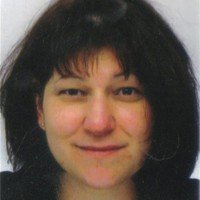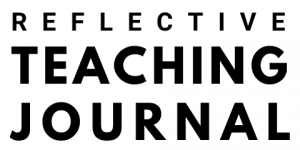
Dana Di Pardo Léon-Henri, PHD
Dana Di Pardo Léon-Henri completed her PhD in Applied Linguistics at the University of La Sorbonne, Paris. With over thirty years of language teaching experience, she is tenured Associate Professor at the University of Franche-Comté, France, in the UFR of Arts and Humanities at Besançon, where she teaches English for Specific Purposes (ESP).
Her research is focused on ESP, foreign language teaching and acquisition, pedagogy and didactics, evaluation, artificial intelligence and diagnostic assessment, language policy and professional skills development at the higher education level. Her work has been published in peer-reviewed journals and volumes, and has been presented at a number of academic conferences abroad.
My Work Story
In a previous life and while still living in Canada, I was the VP of a family owned company where I learned and developed many professional skills.
At the same time, I was teaching night school in a Language Instruction for Newcomers (LINC) Program to many foreign immigrants (from Europe, Asia, Africa and South America), who needed to learn English quickly for their personal and professional integration.
In addition, I was teaching Introductory French and Italian night classes to (mostly) adult students who wished to travel to France and Italy. A few years earlier, I had earned a Double Bachelor of Arts (in French and Italian) from Brock University, St. Catharines, Ontario and I was determined to keep practicing my language skills and theoretical knowledge in a practical setting.
Teaching was always a sincere pleasure for me. Since the day I received my first chalkboard (still have it), I enjoyed speaking to my students (my smiling dolls and happy stuffed animals), while I gave them lessons on Robert Louis Stephenson’s Garden of Verses poetry, a book (still have that too) I had received from my aunt Evelyn, a woman from Liverpool with a history and accent to boot.
The day after my administrative interview with Carol W. at the LINC program, my dear teaching colleague, Norma F., literally gave me the keys and said: ‘You’re on your own, kiddo!’ What Norma F. did was provide me with a precious gift: her unending trust, but above all, the freedom to find my way, while adopting and adapting my teaching methods.
With the LINC program, I enjoyed every moment of looking through all of the teaching supports (books, magazines, and manuals) and resources (games and cassettes). Preparing my lessons was so much fun. However, as a new teacher, it was a real challenge. Since Norma was my only colleague, I felt that asking too many questions would undermine her trust, so I independently read and researched as much as I could.
Teaching English to foreigners can be a lot of fun. For instance, teaching the “th” and “thr” sounds to hesitant and uneasy Asian students was a hilarious riot for all of us. I was profoundly touched by my LINC students who came to class every week with their stories, trials and tribulations of daily life. I learned about their individual journeys to Canada and shed many a tear for their sufferings. I was humbled beyond words and instantly my troubles seemed meaningless compared to theirs.
What I learned in terms of didactics and pedagogy in the LINC teaching experience, I transposed to my Introductory French and Italian courses. Every week, preparing lessons became easier. A few years later, I was offered the opportunity to teach Introductory and Advanced French at a division of Mohawk College. It was there that I realized I felt most comfortable and in my natural element.
And that is just my first life! It really seems life a lifetime ago… Over three decades have passed since that first interview with Norma. After almost two decades of living in France, my goal when I wake up each morning is to help other teachers, instructors, and educators who strive for success in the classroom. A better work environment is possible, and I am here to help you get there.
Education & Diplomas
- 2008 PhD Doctoral Thesis “English, the foreign language of the European citizen? From educational policies in France and Europe, to the development of a diagnostic assessment of oral and written skills”, at the University of Paris-Sorbonne, Honorable Mention (unanimous). Research Director: Liliane Gallet-Blanchard, University of Paris-Sorbonne. Jury Members: Marie-Madeleine MARTINET (Paris-Sorbonne [Paris IV]), Philip RILEY (University of Lorraine at Nancy), Laurens (Larry) VANDERGRIFT, (Official Languages and Bilingualism Institute, Université d’Ottawa, Ontario, Canada).
- 2005 Diploma of Advanced Studies in Anglophone Studies, at the University of Paris-Sorbonne “Learning the English language and its use in companies in France: Image and reality
- 2004 Master in English at the University of Lorraine, Nancy, France “The imperialism of the English language”
- 2003 Bachelor of Arts in English, at the University of Lorraine, Nancy, France
- 2002 Certificate in Teaching English as a Second Language (CERTESL), at the University of Saskatchewan, Canada
- 1989 Double Bachelor of Arts in French and Italian, at Brock University, St. Catharines, Ontario, Canada
My Personal Story
For almost twenty years, I have been living and teaching in the east of France. My initial plan was to live and work in France for a few years. But, what can I say; the « joie de vivre à la Française » really got the better of me. Ironically, when I meet expats here, and there are quite a few, we all share that same story! Maybe it’s the French gastronomy and the European way of slowing down to really enjoy and cherish each moment.
I live with my husband in the East of France, not far from the borders of Belgium, Luxembourg and Germany. There are many advantages associated with living in France. The country is relatively small compared to my native Canada (551,500 sq km for France and 9,984,670 sq km for Canada), but the population is much denser (France: 67.1 million people to Canada’s: 36 million people). This can be a real problem during the vacation period when many tourists come to visit this incredible country.
When I am not teaching classes, researching or writing, I am travelling to be with my family. We have all visited quite a few different places in France and Europe and there is still so much to do and see. Many people ask me about my favorite place in France. Every year it changes because we are constantly discovering new places. Although, last year I found my most favorite place to date: the beaches of Mimizan, on the Atlantic Ocean in the Landes department in Nouvelle-Aquitaine in South-Western France. If you travel north up the coast, you will come to Lacanau, a “California” surfer’s dream. It’s not mine though. There are too many people there. Mimizan is my dream – it’s nice a quiet, for the time being, that is…
Publications
Here are a few of the publications I have written or collaborated on over the past few years.
Reflective Teaching
Teaching Metacognitive & Soft Skills
Role-Play & Intercultural Communication
2018 « Plurilingual Business Communication Strategies for the European Economy ». Dans Ch. Tremblay, coord. & C. Truchot, pref., Plurilinguisme, entreprises, économie et société (collection Plurilinguisme, 2018-1), OEP : 177-186.
2017 avec Bhawana Jain. « Role Play: A Practical Way to Teach Intercultural Communication », Recherche et pratiques pédagogiques en langues de spécialité, Vol.36 N°2.
2015 « CLIL in the Business English Classroom: From Language Learning to the Development of Professional Communication and Metacognitive Skills ». ELTWorldOnline, April, Special Issue on CLIL.
Pedagogical Engineering
2020 « Diary Studies : A Transnational Networking Instrument for TESOL Teacher Education ». Dans O. Barnawi et S. Anwaruddin, (eds.), Mobility of Knowledge, Practice and Pedagogy in TESOL Teacher Education: Implications for Transnational Contexts, Palgrave Macmillan (June 2020).
Teaching Foreign Languages
2015 « Inviting Mad Men into the Business English Classroom ». Dans J. C. Dunn, J. Manning, Igor Ristic, eds., Lucky Strikes and a Three-Martini Lunch: Thinking about Television’s Mad Men. 2nd edition. Newcastle upon Tyne: Cambridge Scholars : 313 – 344.
2015 « Transgressive Women From Shakespeare to Shaw and Bryans ». Dans A. Howe-Kritzer, M. Lopez- Rodriguez, eds., Women on Trial: Gender Construction in Dramas about Accused Women. Amherst: Teneo Press : 113-135.
Learn More About Dana
I use reflective teaching practices to conduct research on didactics and pedagogy, in order to share my findings with fellow colleagues worldwide while giving back to a discipline that has provided me with so much all throughout my life.
Two of my favourite mottos:
Ad aspera ad astra!
Carpe diem!
